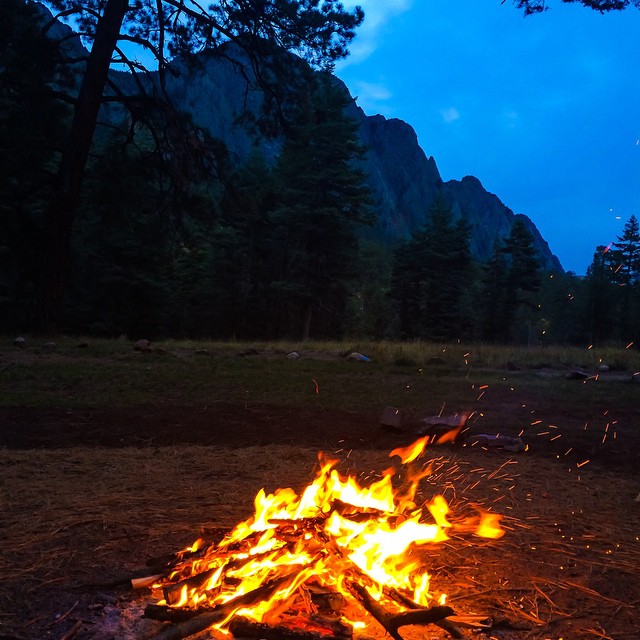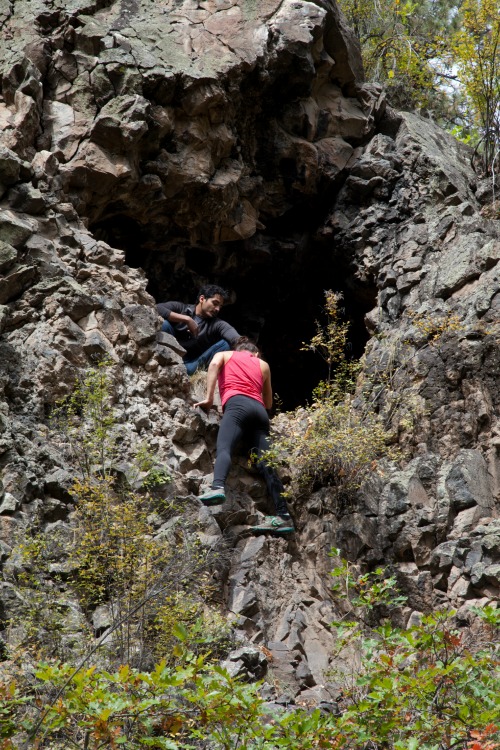You don't need a supercomputer to recognize that huge chunks of our time are occupied by the stuff we do on our electronic devices. However, until I spent six internet and cellular free days in the mountains of northern New Mexico last week, I had not grasped precisely how much time I spend online. On a daily basis I’m answering hundreds of e-mails, posting updates and photos on social media, blogging (like right now), and texting with at least 10 different people. It’s no joke.
To fit it all in, I’m lucky if I create an hour a day to pause, be in the moment, do something outside, read a book, or sit to eat with family and friends.
Sometimes I want to throw away my phone, close my social media and email accounts, and turn back the clock to the 70’s and 80’s before these technologies existed and go camp in the woods, or hang out on the beach (without worrying about getting sand in my iPad). Can you relate?

As much as I fantasize about throwing in the tech towel, I practice yoga, and as the name yoga (meaning union) suggests, we like to connect. Even if it’s through a screen. And this longing to connect is what keeps me on my iPhone and laptop.
Some on the retreat were surprised that I would be addicted to devices and technology. People often make the assumption that because I do yoga, that I’m immune.
The truth is that most everyone now grapples with their relationship to technology, and yogis are no exception.
That said, I do believe yogis, with their understanding of mindfulness and being present are ripe to lead the charge to explore ways in which to create boundaries with devices and schedule purposeful times of “unplugging” to simply be. But to do this this, we must start with ourselves.
The biggest realization I gained from six days off is that in the absence of transmitting electronic devices and social media I was truly free (as my younger self was) to do whatever my heart desired. Time opened up and I became obligated only to myself and to the people that mattered most.
There was space to relish nature, read books by a crackling fire, break bread with the artists and visionaries at the retreat, spend 5 hours hiking through the woods with no trail, and to rock climb for the first time in years. I enjoyed the better part of one day creating land art (see videos below!) practiced yoga, pampered and sauna'ed, sang, and played music!
Note: We agreed to use smartphones and cameras for the sole purpose of photography and creating imagery. Videos by Norman Johnson.
The whole idea of “Fear of Missing Out” (FOMO) is actually an illusion of sorts. Life goes on. It was OK not to “need” to know every detail of the feeds I regularly scroll through. Not having to be 100% on every minute of the day in order to stay on top of things was a massive relief to my spirit.
I'm still getting used to typing on my laptop again. And sure, I've got an overwhelming amount of work and emails to catch up on, but it was worth it.
Perhaps you’re saying, “Duh, why is this such a revelation?” but honestly, the most time I’ve given myself off the grid in the last few years has been a day, not six.
My new goal is to extend the time even longer on my next “unplugging”.
Based on what I learned during those seven days, here are some ways we can start creating a healthy relationship with technology:
- Realize that you’re not missing out. Not seeing every single post in your Instagram or Facebook feed is OK. If there is someone you really need to catch up with, pick up the phone. You can also check their individual page instead of scrolling through an entire feed so you are selectively choosing vs. being subjected to the blast of everyone and their mother’s updates. Just this choice alone will limit your time on social media and open up more time in your day.
- Unplug for at least an hour a day and unplug for one whole day per week. Give yourself the gift of being free to do what you enjoy most such as reading a book, cooking and eating a meal at the table with no distractions, taking a bath, hiking or walking outside. Tell your colleagues and friends that this is your time off and to not expect responses during that time.
- Build in at least 1-3 solid vacations (stay-cations count!) a year and purposely hit the off button on all technology! This can be a great time to recharge, reboot and prevent burnout. A “Digital Detox” helps you get back in tune with your own rhythms and nature’s rhythms vs. keeping up with the pace of the digital world. It’s such a joy to dictate how you spend your time rather than spending so much time responding to other people’s demands of you.
- Be in the moment and do one thing at a time. We’ve all too often been in a conversation with someone or in a meeting and one of us gets a text message or e-mail popping up on the phone. Don’t be that person who picks up the phone in the middle of the conversation to see who texted! Put the phone in airplane mode and out of sight and give your fullest attention to the moment.Here’s a trick I learned from Shannon, who recently joined our team at 90 Monkeys: When you’re out to eat with family and/or friends, put all of the phones in the middle of the table face down. The phones have to stay there for the entire meal (no exceptions!). Whoever touches their phone first buys everyone’s dinner. Not only is it a fun game, but it also lets you enjoy a meal together without any outside distractions.
These methods for digital detox will make you happier, more productive, and help you to gain more perspective on your life. The best proof of this is to try it yourself. Once you’ve done a full “unplugging”, chances are you’ll be longing to press the off button more often.
Have you done a digital detox? If so, please share your experience and methods for a healthy relationship to tech in the comments below.
 We enjoyed this fire every day in an outdoor living room!
We enjoyed this fire every day in an outdoor living room!
 Here I am bouldering up to a lava cave with my new friend Imran, founder of EmbarcChicago.org. Photo by Norman Johnson.
Here I am bouldering up to a lava cave with my new friend Imran, founder of EmbarcChicago.org. Photo by Norman Johnson.

